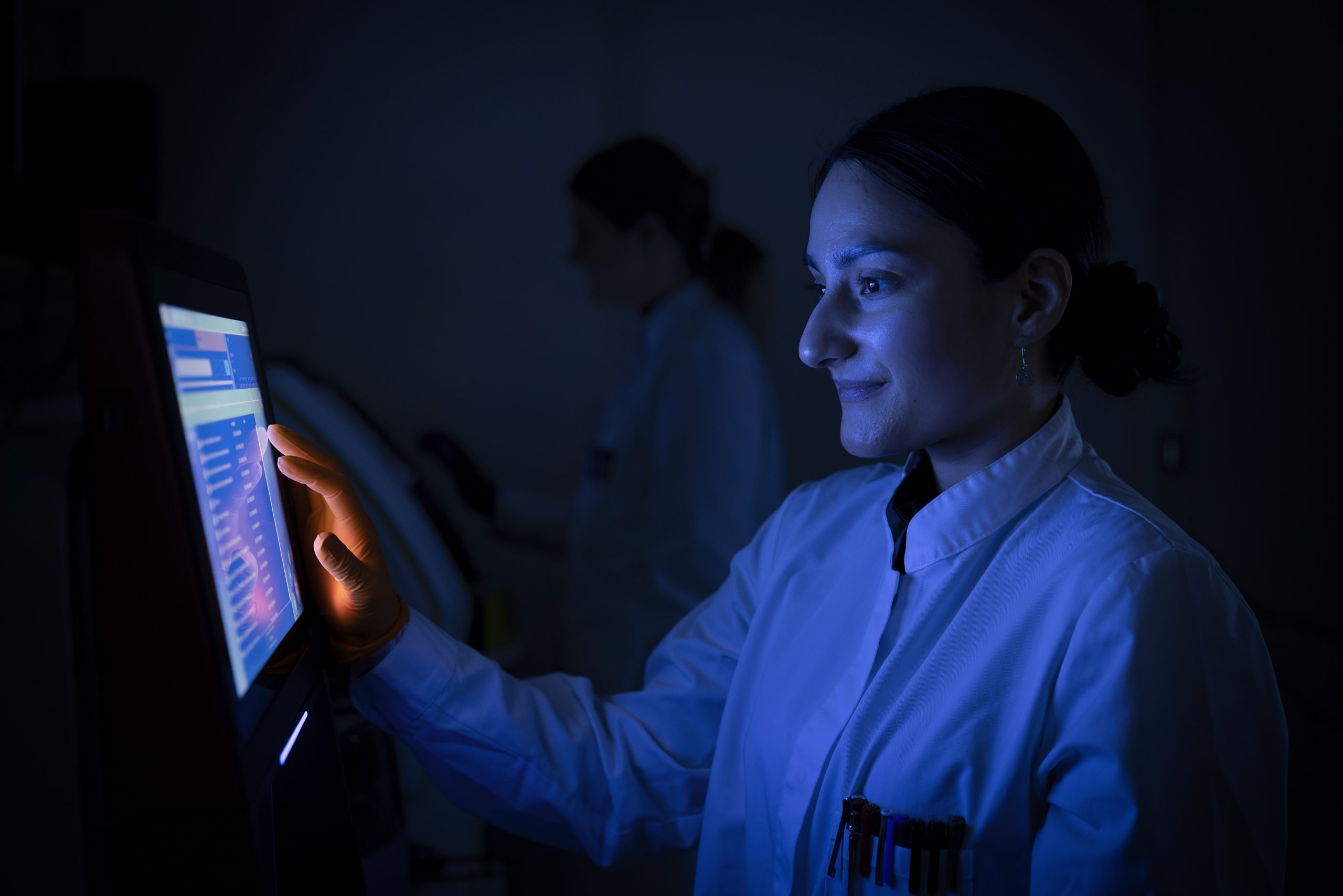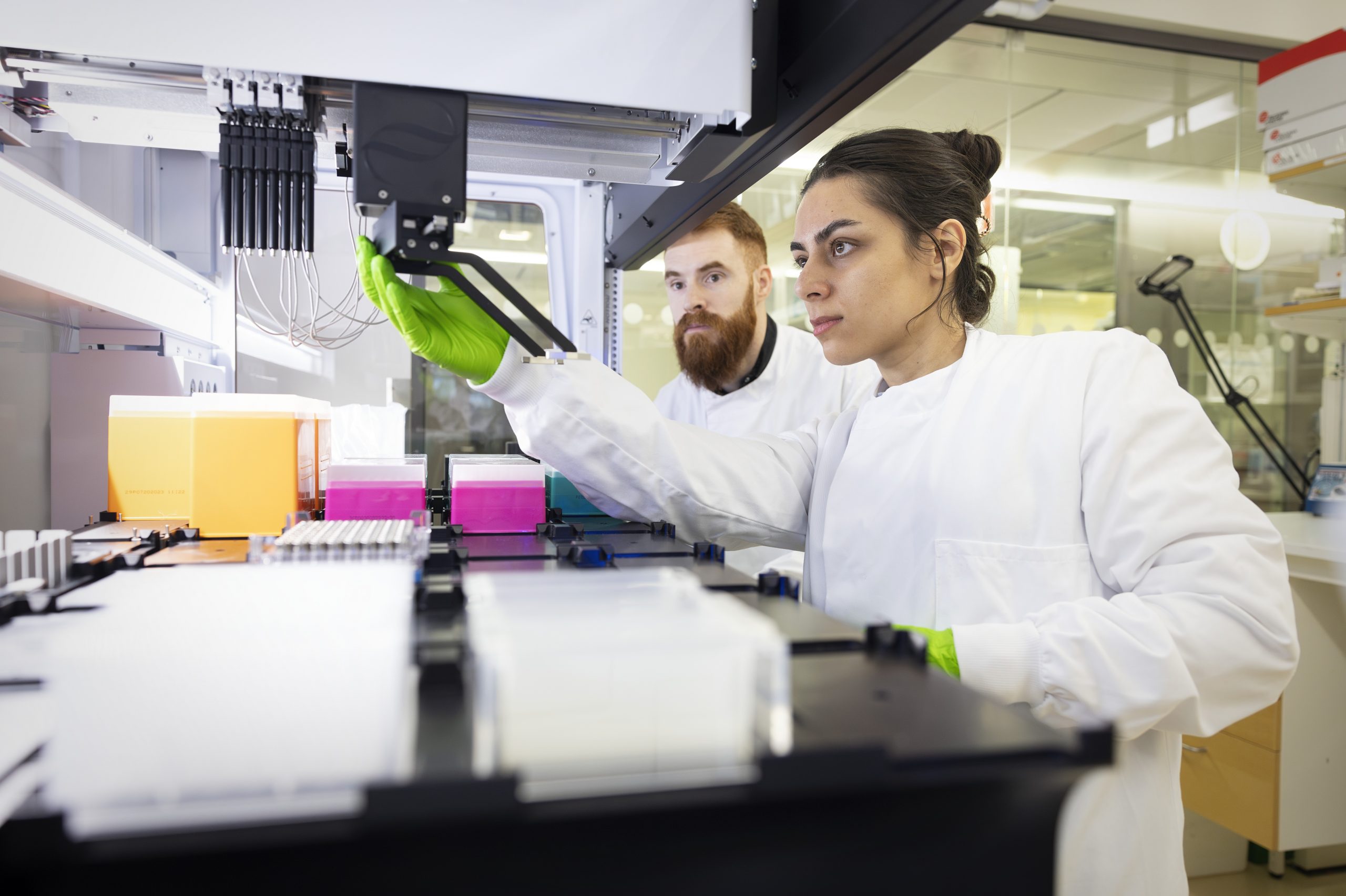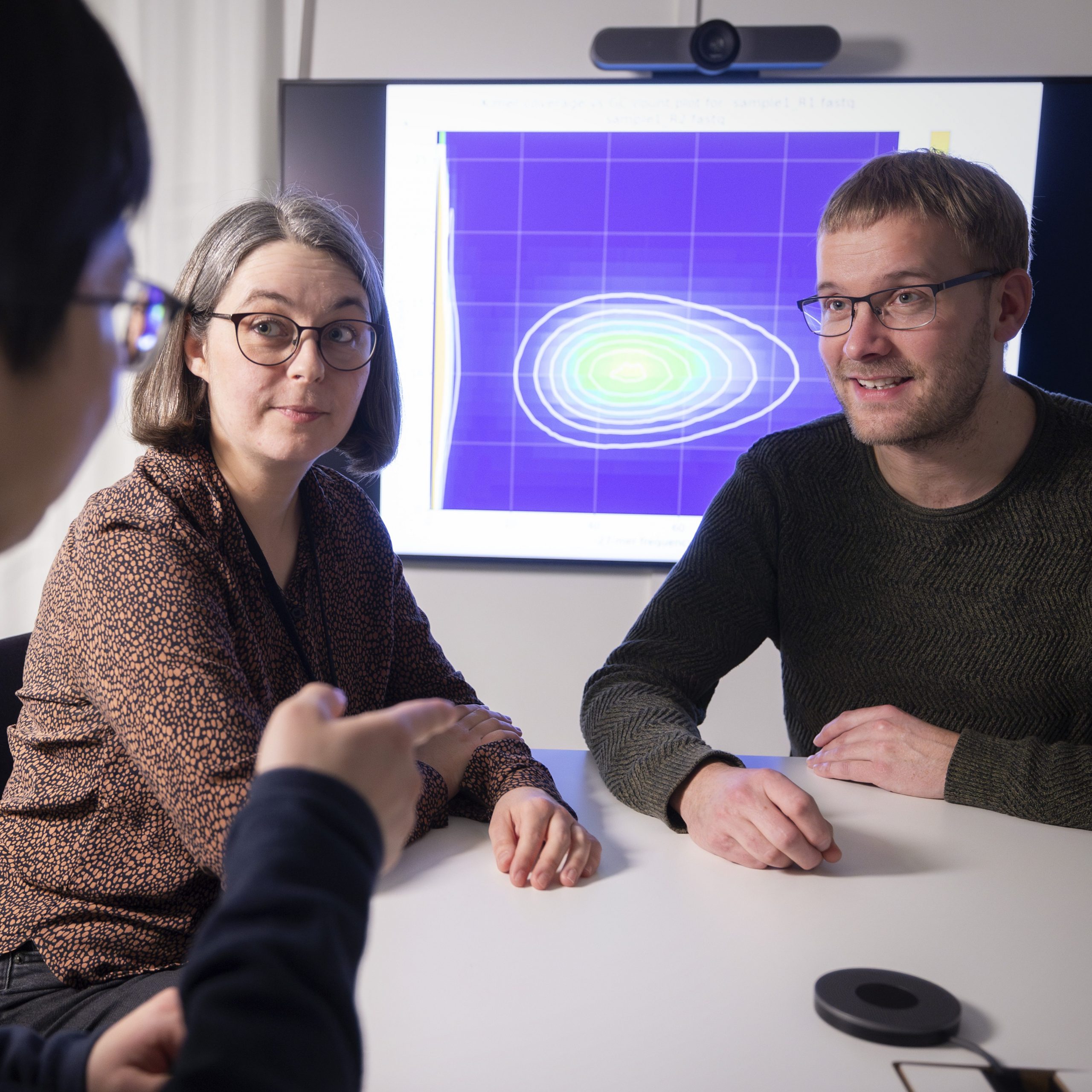Briefly about Proteomics
Proteomics investigates proteins expression and modification to drive advancements in life sciences, including biology, medicine, and biotechnology. Our SciLifeLab platform offers a comprehensive repertoire of affinity based and mass spectrometry technologies to support basic and translational research. We offer in depth molecular profiling of biofluids, single cells and tissues by high-multiplexed affinity-based assays and high-resolution mass spectrometry (MS). The Global Proteomics and Proteogenomics and Glycoproteomics and MS Proteomics units support studies of proteogenomics, characterization of protein variants, PTMs, protein-protein interactions and protein structural characterization. The Affinity Proteomics unit perform sensitive quantification of body-fluids biomarkers including chemokines, cytokines, circulating antibodies and analysis of microsampling to enable population studies and disease surveillance.
Contact person
For general inquiries about proteomics services at SciLifeLab, please contact Claudia.

KTH Royal Institute of Technology
Platform Coordination Officer
claudia.fredolini@scilifelab.se
+46 (0) 70 395 63 01
What we offer at SciLifeLab
Affinity-based Protein Analysis
Affinity proteomics relies on the use of affinity reagents as detection probes for proteins in biological samples. Affinity-based proteomics methods are particularly powerful in the analysis of human body fluids enabling high-throughput quantification of circulating biomarkers, profiling of autoantibody and serology studies. Cutting edge technologies and automated workflows to dupport large cohort studies are available.
The Affinity Proteomics unit offers:
- High-throughput, high-plex profiling
- Ultrasensitive low-plex quantification
- Microsampling analysis
- Customized immunoassays
- Antibody validation and selectivity
- Analysis of proteins interactions and PTMs in cells and tissues
Explore more

MS-based Protein Analysis
Mass spectrometry (MS) based proteomics enables protein analysis on a global discovery scale that can include variant and modifications in protein identification. MS analysis is a versatile tool for global and detailed protein analysis of biological systems and protein networks. Access to the latest high-performance LC-MS instrumentation, methods, wide range of applications and expertise in life science is available. Quantitative in-depth as well as targeted proteomics, profiling, interaction studies, single cell and post-translational modification (PTM) analysis are examples of the research support.
The Global Proteomics and Proteogenomics unit in Stockholm and Glycoproteomics, MS Proteomics unit in Gothenburg and Clinical Proteomics Lund offer:
- Quantitative in-depth proteomics
- Proteogenomics
- Targeted proteomics
- Interaction analysis
- Single-cell analysis
- Post-translational modification (PTM) analysis – focus on phosphorylations and glycosylations.
- Body fluid analysis
Explore more

Spatial Protein Analysis
Spatial proteomics enables protein profiling within tissues in individual cells at subcellular resolution. Spatially resolved technologies support mapping of proteome heterogeneity in biological samples deepening the understanding of cellular organization, protein-protein interactions and complex physiological and pathological events at the tissue level supporting basic and translational research in any biological and medical field including , neuroscience and oncology. The Spatial Proteomics Unit is located in Stockholm and offers a number of highly multiplexed immunofluorescence, including:
- High-plex IF with Phenocycler-Fusion (Akoya)
- Medium-plex IF with COMET (Lunaphore)
- Low-plex IF with Signal Star (Cell Signaling Technology)
- Antibody conjugations for Phenocycler
- HE stainings in combinations with IF
Explore more

Bioinformatics Support
The SciLifeLab Bioinformatics platform (NBIS) offers support to proteomics projects, such as:
- Free drop-in and initial project consultation
- Embedded support for structural biology data processing
- Bioimage analysis using computer vision, machine learning, and bioinformatics
- Protein structure prediction including AlphaFold2
- Open Science, FAIR data management, and data publication support
Explore more

Other Infrastructure Resources
BioMS is a nationally distributed infrastructure for biological mass spectrometry and proteomics, enabling the cutting-edge mass spectrometry and related advanced technology platforms to be part of research projects across Sweden. Each node offers specialized analytical techniques and experimental knowledge to meet the Swedish life science community demands.
The Human Protein Atlas based at SciLifeLab is a Global Core Biodata Resource in life sciences aiming to map all the human proteins in cells, tissues, and organs using an integration of various omics technologies. As an open-access initiative, Human Protein Atlas has been selected a core research infrastructure in Europe by ELIXIR due to its importance for European life sciences, and also selected as a core data infrastructure by the Global Biodata Coalition as a resource of fundamental importance for the global life sciences community.
